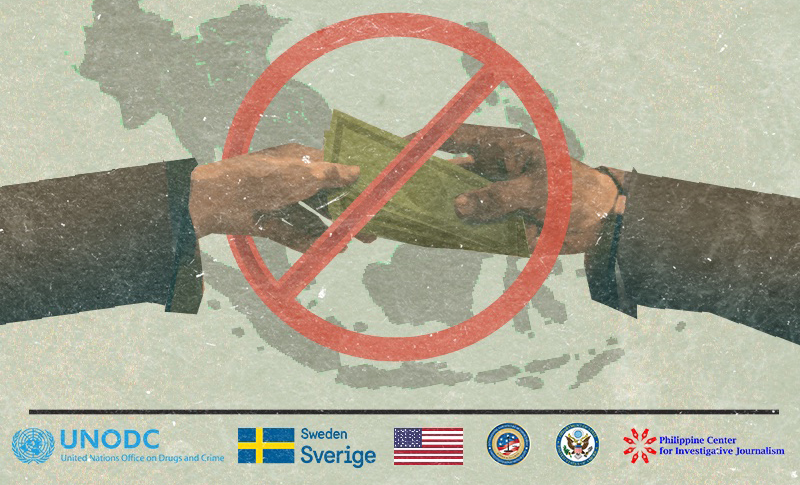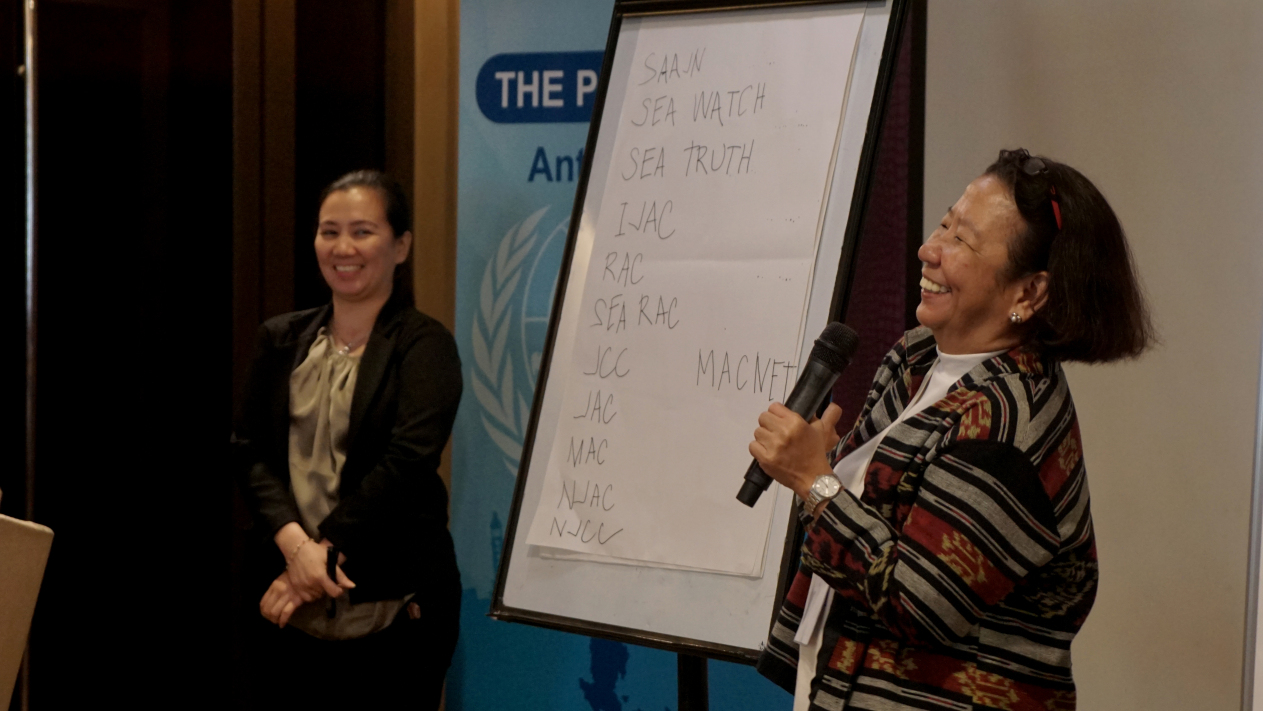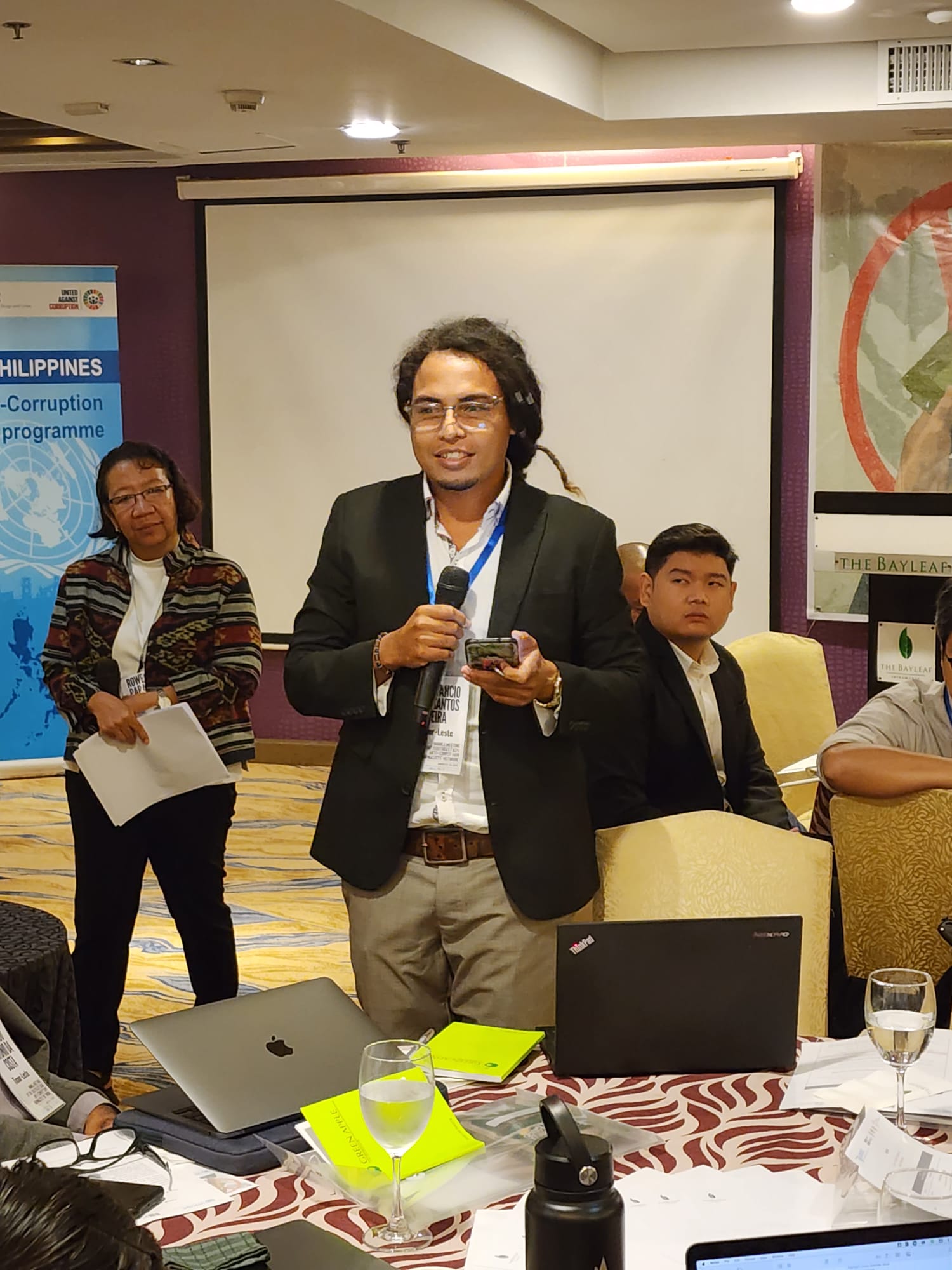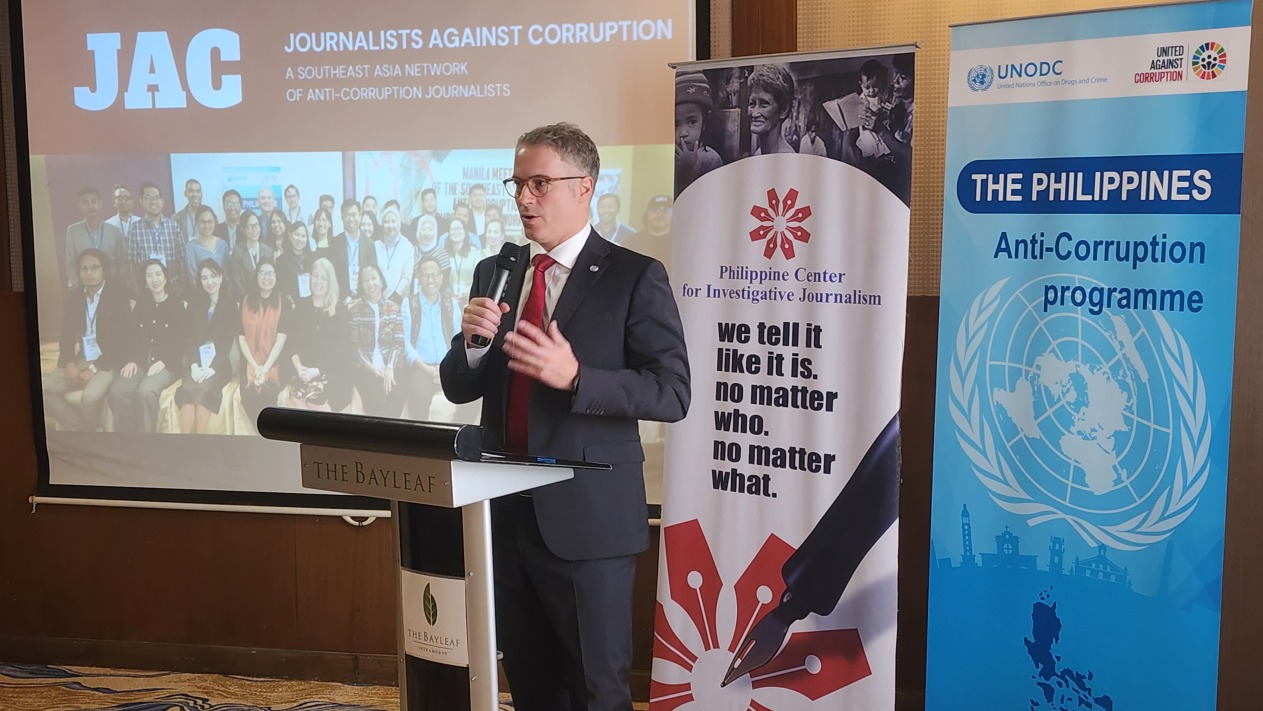
Manila (The Philippines), 21 March 2024 – To boost reporting on corruption issues in Southeast Asia, journalists from across the region have formed the Journalists Against Corruption (JAC) network this week, with support from the UN Office on Drugs and Crime (UNODC).
The new JAC network will serve as a platform for interested journalists to investigate and expose corruption issues through national and regional investigative collaboration and training opportunities.
The 35 journalists gathered in Manila this week to launch it represented media organizations such as: Tempo and Project Multatuli in Indonesia; The Nation and Green News in Thailand; Sinar Project in Malaysia; Camboja News in Cambodia; the National Radio and TV of Timor-Leste; plus reporters from Lao PDR and Philippines outlets including Rappler, GMA News and ABS-CBN. Other regional journalists from Viet Nam and Singapore also made online commitments to participate in the JAC network.

“JAC is a network that unites media practitioners dedicated to investigating and exposing corruption issues. It is a platform to upscale national and regional collaborative investigations and provide training that meets the needs of local journalists,” said Carmela Fonbuena, executive director of the Philippine Center for Investigative Journalism (PCIJ).
Building on its experience in developing the Pacific Anti-Corruption Journalists Network (PACJN) and in supporting national media throughout Southeast Asia and Mongolia, UNODC has partnered with PCIJ to form the network, with support from the Government of Sweden and the US International Narcotics and Law Enforcement Affairs (INL).

“The creation of the JAC network marks a significant step forward in our shared mission to tackle corruption as a whole-of-society issue,” UNODC Country Manager for the Philippines Daniele Marchesi told journalists at the launch. He also acknowledged UNODC’s role as the guardian of the UN Convention against Corruption (UNCAC), the only legally binding universal anti-corruption instrument.
“Investigative journalists shine a light on hidden corruption, holding those in power accountable and bringing injustices to the forefront of the public discourse. In regions like Southeast Asia, your stories can bring about change, influence policies, and inspire collective action against corruption,” Marchesi added.
Beyond the 2024 pilot period, JAC is designed to be a self-sustaining network, with devolved national focal points bringing the benefits of regional collaboration to the national level.

“We can see the important role that free and independent media plays in the fight against corruption. Sweden will continue to be a clear voice in supporting an independent and free media and the fight against corruption,” said Erica Villborg, Programme Specialist in Human Rights, Democracy and Gender Equality Development Cooperation at the Swedish Embassy in Bangkok.
Click here to learn more about UNODC’s anti-corruption efforts in Southeast Asia and the Pacific.
Click here to learn more about the UN Convention against Corruption (UNCAC).